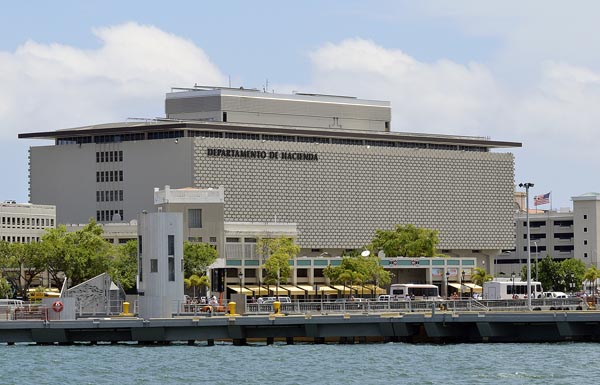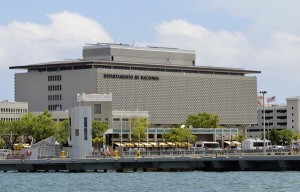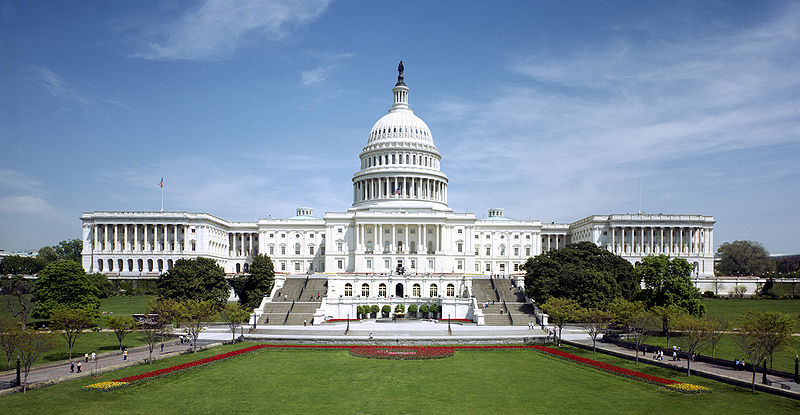Preliminary May 2014 collections beat estimate by $29M


Treasury revealed May collections as well as measures being considered to gap the budget deficit. (Credit: © Mauricio Pascual)
Puerto Rico Treasury Secretary Melba Acosta-Febo said today that preliminary General Fund revenue collections for May totaled $753 million, exceeding collections for the same month of last year by $141 million, or 23 percent, and beating estimates by $29 million.
Acosta-Febo explained that the main tax collections contributing to the increase were the excise tax on foreign corporations and the income tax on corporations. In the case of the excise tax on foreign corporations, the month’s collection totaled $238 million and represented $104 million in excess of collections in May of last year.
Regarding the corporate income tax, $80 million was collected, approximately $30 million, or 61 percent, more than last year. She attributed the increase largely to corporations, mostly from the commercial sector, that close their books on Jan. 31 and file their tax returns in May.
“The income accrued this fiscal year for the period of July to May amounts to $8.0 billion, which represents an increase of $614 million, or 8.3 percent, over the same period of the previous fiscal year. The increase is attributable to income measures approved in the previous year’s budget to reduce the fiscal deficit, particularly the gross receipt tax and the increased foreign corporations excise tax rate, as well as efforts to stop tax evasion and increase collections,” she said.
Collections from consumption taxes generated mixed results for the month. Acosta-Febo explained that May sales and use tax collections increased by 7 percent on a year-over-year basis to $99.5 million, which is the highest level in history for the month of May.
However, there were reductions in excise taxes for alcoholic beverages, motor vehicles, and cigarettes. There was an increase of $37 million from other items, which was mainly due to the electronic and traditional lottery.
Measures to close budget gap for Fiscal 2014
Although collections for May somewhat reduced the collections gap relative to the cumulative estimate in April, the accrued revenues are still $320 million below the budget’s revenue estimate.
To close this gap by the close of fiscal year 2013-14, Acosta-Febo and Office of Management and Budget Director, Carlos Rivas, said several measures are being considered, among them:
- Utilization of a surplus of $35 million from a 2009 Puerto Rico Sales Tax Financing Corp.’s (known as COFINA) bond issue.
- Other measures to increase the collections that Treasury usually executes at the closing of the year, including advancing payments to be made on or before July 15 by corporations that applied for extensions.
- Adjustments totaling up to $370 million will be made to undisbursed special allocations; the final number will depend on the need for adjustments. The number includes, adjustments to the repayment of about $250 million to the Government Development Bank from lines of credit payable from legislative allocations; payment of the remaining undisbursed $90 million from the additional uniform contribution to the Central Government Employees Retirement Systems Administration and other items. The OMB will configure and negotiate the corresponding payment plans to make these contributions in installments in future fiscal years.
- As a result of the market issue in March of $3.5 billion in General Obligation Bonds, the central government liquidated more than $1.9 billion in debt with the GDB, including the voluntary prepayment of more than $200 million in debt payable from legislative allocations.
“During this fiscal year, we have exercised a strict spending discipline that allowed us to amend the effective budget to reduce $170 million in expenses in February, from $9.7 billion to $9.6 billion,” Rivas said. “Although this additional reduction in expenses of $340 million will be based on non-operational cuts, we will continue exerting the same fiscal responsibility.”
“We will submit within the next 90 days a bill of law to establish plans for the repayment of pending amounts both to the GDB and the Retirement Systems Administration,” he said.
The execution of the action plan contemplated for the closing of fiscal year 2014 will depend on final written opinions of the Puerto Rico Department of Justice.
Analyzing changes to gross receipt tax, other measures
Regarding the decision of whether the certified collections for 2014-15 should be amended in light of the reduction in revenue in fiscal year 2013-14, Acosta-Febo said the agency is analyzing the situation with the assistance of external economists.
She confirmed, “We will have further comments on this matter shortly.”
She explained that when the collections estimate for the 2014-15 budget was prepared, the budgeted income base for 2013-14 was reduced by $537 million.
“Of this amount, between $250 to $300 million can be directly attributed to the reduction in collections for the month of April,” she explained.
“Given this fact, we are determining whether, following this reduction, any additional reduction in the projection of collections will be necessary. One of the reasons for the reduction in collections in April, in addition to timing differences, is the design of the gross receipt tax, which underwent changes during the legislative process last year,” she said.
“We are carefully evaluating the modification of that design, so that the gross receipt tax is not calculated through the calculation of the minimum alternate tax, but in a separate manner. This modification would prevent the gross receipt tax from being subject to reduction for income tax credits, while it would allow it to be deducted as a business expense,” she further explained.
“This alternative is currently being analyzed and configured along with other measures toward the approval of the 2014-15 budget. Several meetings will be held this week with the Legislature to discuss these alternatives,” she added.
Governor’s Advisory Group for tax reform progress report
Meanwhile, Acosta-Febo said the work toward a Tax Reform continues and is in very advanced stages.
“As has been previously mentioned, the governor designated by Executive Order a group made up of government and private sector individuals who retained the services of external consultants from KPMG for the Tax Reform study. Some of the consultants had participated in a previous study of the Puerto Rico’s tax system, particularly the individual income tax and the implementation of a consumer tax, which was carried out in 2004-05 by Bearing Point (which was later acquired by KPMG),” she said.
“The work is underway and the following areas are being studied: individual and corporate income taxes [taxable and exempt, including Act 154], the consumer tax systems [the current Sales and Use Tax system, the Value Added Tax, the excise tax, and others] and property taxes,” she said. “The group of consultants includes experts in all subject matters, including professionals from the United States, Australia, the Netherlands, and other countries.”
Acosta-Febo stressed that to consider any recommended changes to the consumption tax system, the advisory group is making the necessary legal consultation to assess whether changes to the current Sales and Use Tax can be made, in light of the issuance of more than $15 billion in bonds under COFINA.
The results and recommendations of the tax reform work are expected to be ready for the last calendar quarter of 2014 so they can be enacted in the budget of fiscal year 2015-16. This work has required the development of an economic model for Puerto Rico that considers and analyzes all the possible changes and scenarios in our tax system.
The four core guidelines for the Tax Reform project are to achieve a system that:
- Promotes economic development and growth, job creation and the competitiveness of Puerto Rico, promoting both local and foreign investment;
- Is able to procure the resources needed for the government’s operations;
- Is fair and does not promote tax inequity, where everyone contributes according to their economic reality; and
- Is easier to manage and oversee than the current system
To date, the consultants have held more than 30 meetings with groups of interest in Puerto Rico and the United States. More information about the study will be shared in the near future, she said.












